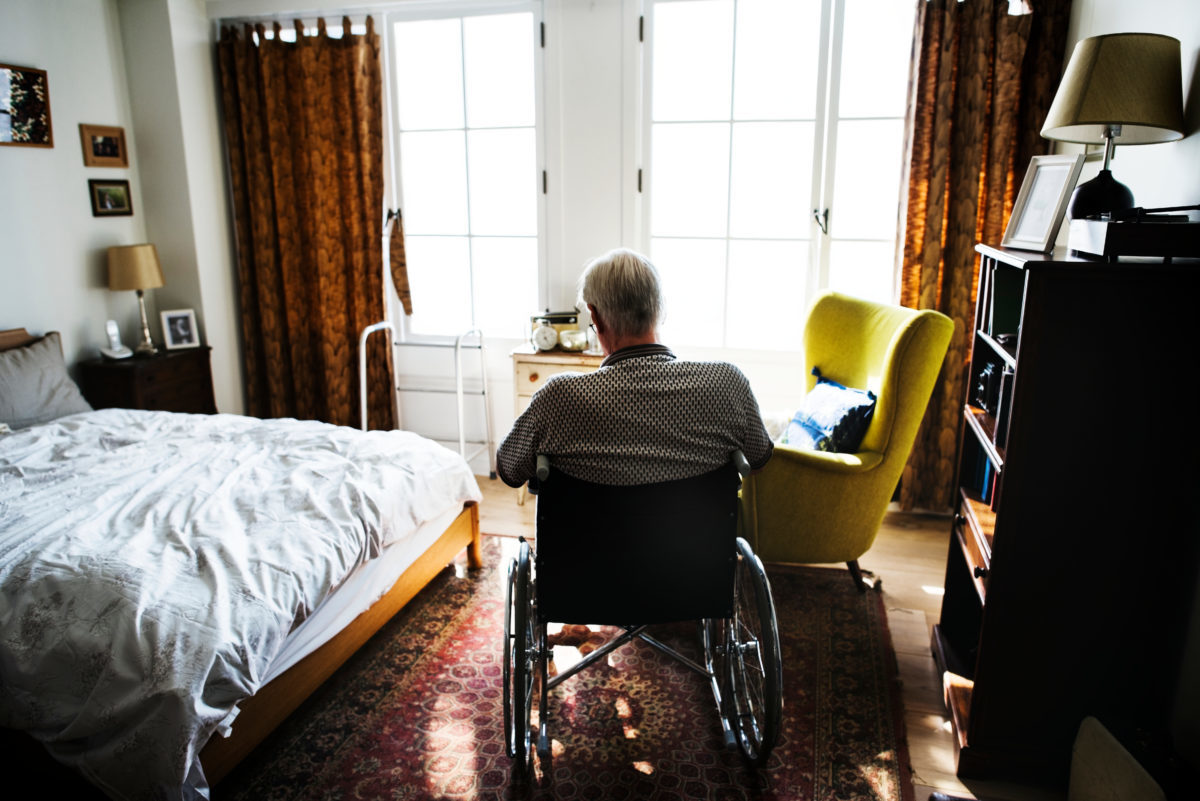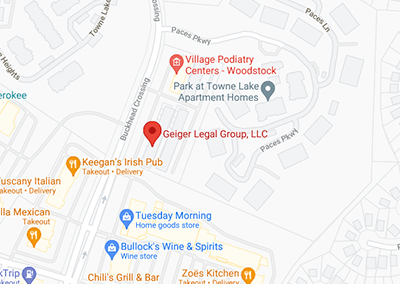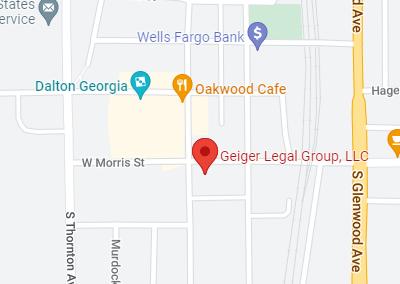Malnutrition in Canton, GA Nursing Homes

When people age, their bodies go through many natural changes. However, those changes can increase the risk of malnutrition for seniors if not managed properly. Factors such as activity levels, underlying health conditions, caloric requirements, medications, and energy expenditure are important to look at regarding the overall health of a nursing home resident. If these factors are ignored or neglected, it can lead to malnutrition.
The Mayo Clinic reports that malnutrition in the elderly can contribute to various health concerns including, but not limited to:
- A weakened immune system
- A higher risk of hospitalization
- Poor wound healing
- Muscle weakness
- Decreased bone mass, which can lead to falls and fractures
- An increased risk of death
If you suspect your loved one is malnourished due to elder abuse or neglect at a Canton-region nursing home, call Geiger Legal Group, LLC today for a free consultation at 770-343-5380.
What’s the Cause of Malnutrition?
There’s a combination of factors that lead to malnutrition such as age, underlying health conditions, and psychological or social issues. Nursing home neglect can cause residents to become malnourished when they aren’t receiving proper nutritional meals, or they’re overlooked due to understaffing.
Examples of issues that may lead to malnutrition include:
- Dementia
- Difficulty swallowing
- Certain medications
- Crohn’s Disease
- Cancer
- Diarrhea
- Nausea or vomiting
- Anorexia
- Isolation
- Limited access to food
- Depression
Malnutrition can make someone more susceptible to other ailments, cause illnesses, or make other health conditions worse. This can cause a cycle of sickness that is difficult for an elderly person to overcome.
Health issues related to malnourishment can include, but aren’t limited to:
- Bedsores
- Kidney failure
- Memory loss
- Dementia
- Anorexia
- Heart failure
- Bone fractures
- Muscle weakness
- Weight loss
- Vision problems
- Hair loss
- Chronic wounds or sores that won’t heal
Signs of Malnutrition
Detecting problems associated with malnutrition early on is crucial. It can prevent further complications and potentially save a nursing home resident’s life. The Mayo Clinic advises that observation is the key to recognizing malnutrition.
Download or print this informational flier on signs of malnutrition from our nursing home abuse lawyers here at Geiger Legal, LLC.
Some red flags to look for if you suspect nursing home abuse include:
- Dramatic weight loss
- Hair loss or dull hair
- Mouth sores
- Flaky skin
- Sores or wounds that won’t heal
- Depression
- Confusion
- Cognitive impairment
- Abdomen swelling
- Bedsores
- Sudden blurred vision
- Brittle nails
- Frequent illnesses or infections
Many nursing home residents can’t properly express or communicate that they’re being abused or neglected, which is why it’s so important to watch for signs that they’re suffering.
Combatting Malnutrition in Nursing Homes
Small, consistent changes in your loved one’s diet can help combat malnutrition. Sometimes it’s an underlying condition such as an inability to properly chew food that leads to malnutrition. In instances where an illness or disease is the culprit, recognizing the problem and then treating the underlying condition is the key to helping your loved one get healthy again. There are many ways you can take action to help your loved one who is malnourished. For instance, you can involve doctors and dieticians who can help discover the issue and put them on a special diet or prescribe the proper medications and/or vitamins. Dentists can help residents who struggle with oral pain or the inability to chew food properly. For nursing home residents who refuse to eat or have lost their appetite, supplemental and nutrient-rich meal shakes can easily be incorporated.
Malnutrition may be a sign of elder abuse or neglect when:
- Staff or caregivers fail to involve doctors when there is a problem
- Significant weight loss is ignored
- The quantity or quality of food is poor
- Staff don’t make appropriate accommodations for a nursing home resident who struggles with eating
- Your loved one complains about food options or they aren’t offered alternative choices
- Staff and caregivers don’t follow a doctor’s or dieticians meal plans
- Your loved one is often complaining of hunger
- Your loved one is suffering from chronic pain, infections, or sores that won’t heal and aren’t properly cared for
- Your loved one refuses to leave their room or socialize
- Your loved one expresses fear of a certain staff member or caregiver
Do I need a Nursing Home Abuse Lawyer?
One of the best ways to combat nursing home abuse or neglect is to pay close attention to your loved one. If possible, visit them often, alternating the days and times you go to see them. If there are restrictions in place that limit visiting due to COVID-19, make a point to call your loved one. Ask them questions. Have them send photos of themselves or ask the nursing home to send photos. Arrange a no-contact visit with your loved one. Many nursing homes are shut down to the public to limit exposure to COVID-19 but will coordinate an in-person visit through a window, or even organize an online visit through a streaming device such as Google Meet or Zoom.
If you’ve noticed signs that your loved one is malnourished or you suspect they are suffering from abuse or neglect, please do not hesitate to get the legal advice you need. Call the nursing home abuse lawyers at Geiger Legal Group, LLC in Canton, GA today for a free case review. An experienced elder abuse attorney can help you understand your rights, evaluate your case, and give you insight into your legal options. An experienced nursing home abuse attorney can negotiate on your behalf and hold the correct people responsible. Call us today at (770) 343-5380 or fill out our free case review form here.




























